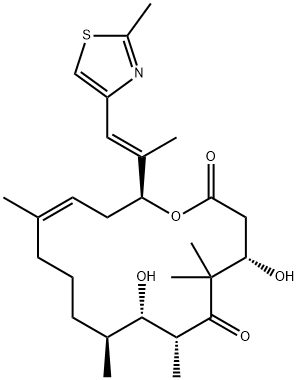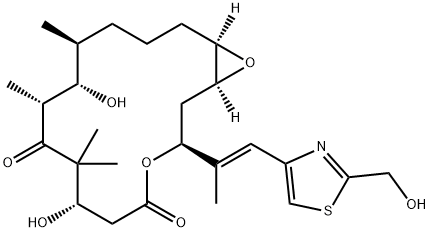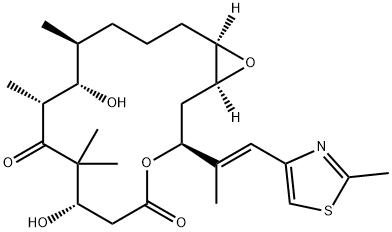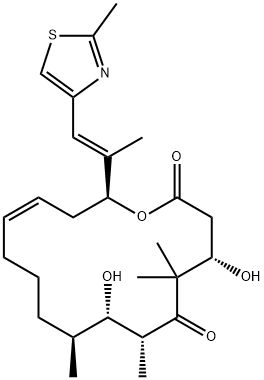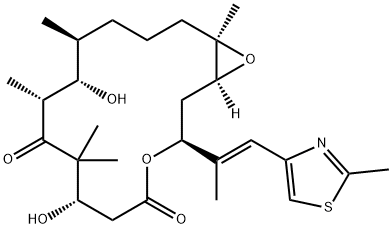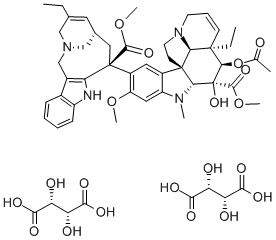EpothiloneD , ≥98%,BR , 189453-10-9
| Pack Size | Price | Stock | Quantity |
| 1mg | RMB356.80 | In Stock |
|
| others | Enquire |
PRODUCT Properties
| Melting point: | 63-66°C |
| alpha | D22 -61.3° (c = 2.5 in methanol) |
| Boiling point: | 663.7±55.0 °C(Predicted) |
| Density | 1.084±0.06 g/cm3(Predicted) |
| storage temp. | -20°C Freezer |
| solubility | Soluble in DMSO |
| form | solid |
| pka | 13.47±0.70(Predicted) |
| color | white to off-white |
| InChIKey | XOZIUKBZLSUILX-GIQCAXHBSA-N |
| SMILES | O1[C@H](/C(/C)=C/C2=CSC(C)=N2)CC=C(C)CCC[C@H](C)[C@H](O)[C@@H](C)C(=O)C(C)(C)[C@@H](O)CC1=O |t:13| |
Description and Uses
Epothilones are microtubule-stabilizing agents with potential anti-neoplastic actions. They are natural macrolides that have high potency in both taxane-sensitive and taxane-resistant models. Epothilone D is a desoxy form of epothilone B (Item No. 10924) that inhibits the growth of a variety of cancer cells both in vitro (IC50 values range from 0.97 to 21 nM) and in mice. Epothilone D is brain penetrant and reduces neurodegeneration in aged tau transgenic mice. Effects include improved axonal transport, decreased tau neuropathology, and reduced hippocampal neuron loss. Epothilone D also rescues microtubule defects and attenuates nigrostriatal degeneration in a mouse model of Parkinson’s disease.
Epothilones are polyketide natural products that inhibit cancer cells by a mechanism similar to paclitaxel, and also are effective against paclitaxel-resistant tumours. Epothilone D is in phase I clinical testing of in patients with advanced solid tumours. Epothilone D is a cytotoxic macrolide that stabilises malignant cells'' microtubules and arrests mitosis, a characteristic it shares with other epothilones. They bind to the same hepatic sites as does paclitaxel (Taxol) in a 1:1 stoichiometric ratio of a, b-tubulin heterodimers.

